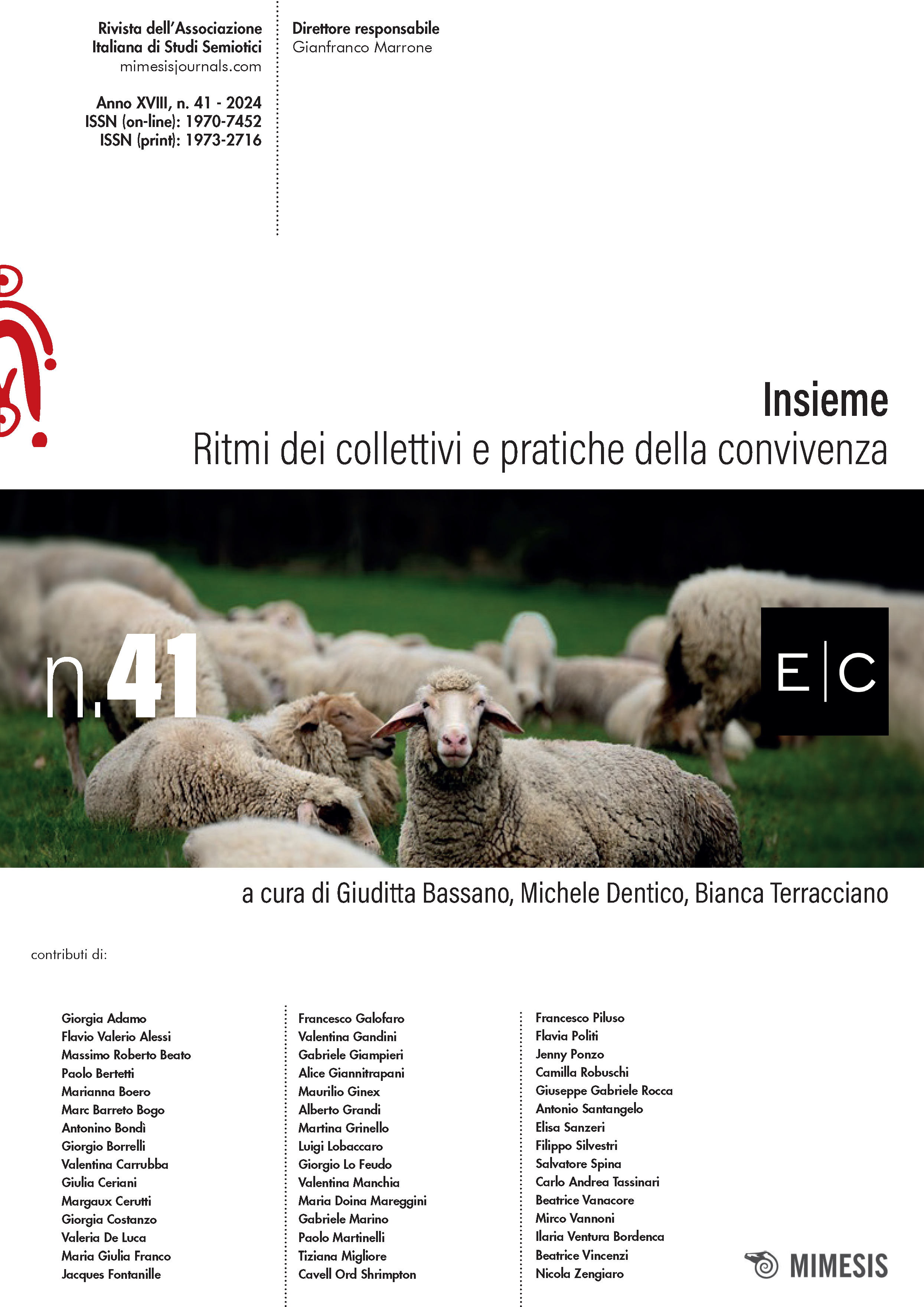Eating Together. The Table as a Convivial Device
Abstract
If it is not necessarily the case that sharing the table (being diners) necessarily means sharing social relationships, it is also true that one of the ways of consolidating interpersonal ties is to confirm them around a table. This centre of aggregation continually rearranges itself, revealing itself sometimes as a centripetal pivot around which predefined groups converge, and sometimes as a centrifugal point, a support from which to draw and then move away in search of relationships that take place in the immediate surroundings (and which therefore make the encompassing space pertinent as a place of sociality), until it disappears in its materiality but not in its function (as when one eats on a sofa, on a desk, in a car or on a bench in the street). The table works thanks to a plurality of dimensions both internal to it (shape, size, materials of which it is composed) and external (mise en place, actors who sit at it, types of food that complete it, spaces that arise around it), which prefigure relationships and ways of being together. From those that are hyper-codified and disciplined by ceremonial and etiquette to those that are more informal and yet no less regulated by practices and habits. The paper aims to identify some characteristics of this complex device in relation to the convivial dynamics associated with it.



